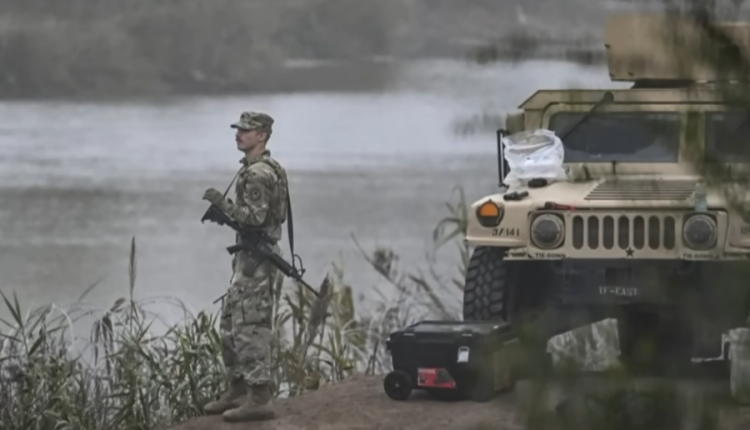Armed Texas National Guard Soldiers Are Now Blocking Federal Agents From Getting to the Border, Government Alleges
The Justice Department filed a complaint against armed Texas National Guard soldiers, alleging obstruction of US Border Patrol access to a 2.5-mile stretch of the Texas-Mexico border in Eagle Pass.
The court filing, submitted on Friday, contends that the Texas National Guard erected new razor-wire barriers along the border and additional fencing further inland, impeding Border Patrol’s ability to reach specific areas along the Rio Grande.
According to the federal government’s allegations, Border Patrol agents have sought access to certain locations along the river, but Texas National Guard soldiers have reportedly denied them entry.
The Justice Department claims that the Texas Military Department, overseeing the Texas National Guard, has not provided immediate comment on the matter.
Before this recent development, Border Patrol agents could navigate the region with trucks equipped with mounted surveillance tools, crucial for maintaining visibility and monitoring activities along the border.
Texas’s Increasing of Actions

However, the Justice Department asserts that the Texas National Guard has now blocked access to the area, preventing the deployment of mobile surveillance trucks.
As a result, Border Patrol’s ability to monitor the border has been significantly curtailed, with visibility now limited to a narrow sliver from a single surveillance camera outside the newly fenced area.
The Justice Department argues that these actions by Texas represent an escalation, impeding the Border Patrol’s capacity to patrol, survey, and respond to emergencies effectively.
The legal dispute between the Biden administration and the Republican-controlled state forms part of an ongoing battle over immigration enforcement at the border.
The federal government contends that the new actions by Texas pose a direct challenge to its efforts to address border security and manage immigration-related emergencies.
The filing seeks the Supreme Court’s intervention to address what the Justice Department perceives as an escalating conflict between state and federal authorities, raising concerns about the impact on border security measures and the ability to respond to emergencies along the Texas-Mexico border.

